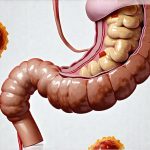The seemingly harmless act of indulging in an “unscheduled cheat meal” – deviating from a carefully planned diet for a moment (or several) of unrestrained enjoyment – can often lead to unexpected digestive distress, specifically loose bowels. This isn’t necessarily a sign of underlying illness, but rather a common physiological response to sudden dietary changes, particularly when the body is accustomed to regularity and specific food types. Many people experience this phenomenon after periods of strict dieting or clean eating, where the gut microbiome has adapted to a consistent intake, making it vulnerable to disruption from unexpected surges in fat, sugar, or fiber. Understanding why this happens can empower individuals to mitigate these effects and enjoy occasional indulgences without significant discomfort.
This article will delve into the mechanisms behind cheat meal-induced loose bowels, exploring how dietary habits impact gut health, how specific food components contribute to digestive upset, and offering practical strategies for minimizing these unpleasant side effects. It’s important to remember that everyone’s body responds differently; what triggers one person may not affect another. This exploration is about understanding the possibilities and equipping you with knowledge to navigate this common experience – a blend of science, practicality, and mindful eating. The goal isn’t to eliminate cheat meals entirely (because let’s face it, sometimes we want that pizza!), but to approach them strategically for a more comfortable outcome.
Understanding the Gut-Diet Connection
The human digestive system is remarkably adaptable, but also sensitive to consistency. When adhering to a structured diet – whether it’s low-carb, keto, paleo, or simply clean eating – your gut microbiome undergoes changes. The types of bacteria that thrive are determined by what you feed them. A consistent supply of fiber encourages beneficial bacteria associated with regular bowel movements and overall health. Conversely, a sudden influx of processed foods, high fats, or refined sugars can disrupt this balance. This disruption isn’t immediate; it takes time for the microbiome to shift, but it explains why a cheat meal after a period of strict adherence often feels more impactful than one indulged in within a generally less restrictive lifestyle.
- A key aspect is gut motility – the speed at which food moves through your digestive tract. Consistent fiber intake promotes regular motility. Sudden high-fat meals can slow down digestion, while excessive sugar or artificial sweeteners can accelerate it.
- The body’s production of digestive enzymes also adapts to dietary habits. If you’ve been limiting certain foods (like dairy or gluten), your enzyme production may decrease, making it harder to efficiently digest them when reintroduced in a large quantity during a cheat meal.
This explains why even small deviations from a well-established diet can cause noticeable digestive issues. It’s not just about the food itself; it’s about how your gut has adapted to your routine and its subsequent vulnerability to sudden changes. Essentially, you are shocking the system. The more restrictive the diet, the greater the potential for disruption, and therefore, the higher likelihood of experiencing loose bowels after a cheat meal. If you often feel full after small meals, exploring screening options can be helpful.
Food Components & Digestive Upset
Certain food components are inherently more likely to trigger digestive upset, particularly when consumed in large quantities or unexpectedly. High-fat foods, for example, require bile for digestion. If your body isn’t used to processing significant amounts of fat, it may not produce enough bile quickly enough, leading to malabsorption and diarrhea. Similarly, excessive sugar intake can draw water into the intestines through osmosis, resulting in loose stools. This is particularly true with fructose, as many people have limited capacity to absorb large quantities of it.
Artificial sweeteners, while often marketed as healthier alternatives, can also cause digestive issues for some individuals. Sorbitol and mannitol, commonly found in sugar-free products, are poorly absorbed by the gut and fermented by bacteria, leading to gas, bloating, and diarrhea. Lactose intolerance is another common trigger; even small amounts of dairy can cause problems if you’re sensitive. Finally, fiber, while generally beneficial for digestion, can also contribute to loose bowels when drastically increased in a single meal – especially if your body isn’t accustomed to it. A sudden surge in fiber intake can overwhelm the digestive system, leading to fermentation and gas production.
The combination of these factors is often what leads to the unpleasant experience after a cheat meal. It’s rarely just one ingredient; it’s usually a confluence of dietary disruptions interacting with individual sensitivities and gut health. Understanding why some meals trigger discomfort can help you navigate these issues.
Minimizing Cheat Meal Side Effects: Preparation & Timing
Proactive steps can significantly reduce the likelihood of experiencing loose bowels after an unscheduled indulgence. One important strategy is pre-loading. Before indulging, consider consuming a small amount of probiotic-rich food (like yogurt or kefir) to support your gut bacteria. This won’t prevent digestive upset entirely, but it may help mitigate some of the disruption. Another technique is to slowly reintroduce potentially problematic foods before fully committing to a cheat meal. If you’ve been avoiding dairy, for example, start with small amounts a few days prior to assess your tolerance.
- Consider the timing of your indulgence. Avoid cheat meals right before important events or activities where digestive comfort is essential. Give yourself ample time to recover.
- Portion control is paramount. Even if you’re going to indulge, avoid excessively large portions. This reduces the overall burden on your digestive system.
Furthermore, hydration plays a crucial role. Drinking plenty of water helps facilitate digestion and can prevent dehydration caused by diarrhea. Finally, be mindful of combining multiple triggers – a high-fat, high-sugar, dairy-laden cheat meal is far more likely to cause problems than a single indulgence. For those experiencing digestive issues, it’s important to know what to test when meals feel heavy.
The Role of Digestive Enzymes & Probiotics
Supplementing with digestive enzymes before or during a cheat meal can aid in the breakdown of food and reduce digestive stress. Specifically look for enzymes that target fats (lipase), carbohydrates (amylase), and proteins (protease). These supplements are widely available over-the-counter, but it’s important to choose a reputable brand. However, relying solely on enzymes isn’t a long-term solution; addressing the underlying gut health is more important.
Probiotics, as mentioned earlier, can help restore balance to your gut microbiome and improve digestion. Consider incorporating probiotic-rich foods into your regular diet or taking a probiotic supplement – but again, consistency is key. A single dose won’t magically fix everything. It’s about cultivating a healthy gut environment over time. Prep-ahead meals can also help maintain consistent dietary habits.
- Avoid combining enzyme/probiotic supplementation with excessive cheat meals; they should be used as tools to manage occasional indulgences, not as license to disregard dietary balance.
- Remember that probiotics work best when coupled with prebiotics – foods that feed the beneficial bacteria in your gut (like onions, garlic, bananas, and asparagus).
Listening to Your Body & Long-Term Strategies
Ultimately, the most effective strategy is to listen to your body. Pay attention to which foods trigger digestive upset for you personally. Keep a food journal to track what you eat and how it affects your digestion. This will help you identify specific sensitivities and make more informed choices. Don’t feel guilty about indulging occasionally; cheat meals can be part of a balanced lifestyle. The key is to approach them mindfully and strategically.
- Focus on building a healthy gut microbiome through consistent dietary habits, including regular fiber intake, probiotic-rich foods, and adequate hydration.
- Avoid extreme restrictions that dramatically alter your gut flora. Gradual changes are generally more sustainable and less disruptive.
- If you consistently experience severe digestive upset after cheat meals, or if it’s accompanied by other symptoms (like fever, blood in stool, or persistent abdominal pain), consult with a healthcare professional to rule out any underlying medical conditions. This article is not intended as a substitute for professional medical advice. Checking digestion speed can offer further insights into your digestive process and help identify potential issues, while also understanding if you need to consider screening options. Finally, don’t hesitate to explore advanced scan layers if you suspect hidden gut issues may be contributing to your discomfort.


















